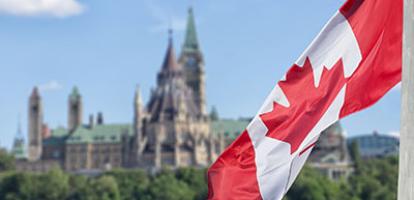The big winner in the recent federal election was clearly climate change. The streets were clogged with marchers, and the parking lots were full of the SUVs, vans and pickup trucks that delivered many of the protesters. Therein lies the challenge of taking action on climate change. Canadians are demanding action, but ask most people what they are doing for climate change, and a frequent response is “recycling?” Ask what they are willing to pay, and the answer from most is “less than $100.” Ask what they think of our energy sector, and the majority say they support a low-carbon economy, the TMX pipeline and responsible energy development.
Canadians want action and, although they aren’t clear what precisely that means, they are clear on who needs to take it – government, big business and the financial sector. And they are right. It’s going to take an uncommon level of collaboration to come up with a means of re-engineering our energy-intensive economy in a manner that meets global environmental goals and maintains the high standard of living that Canadians enjoy.
But they are also wrong because Canadians are among the largest energy consumers and carbon producers on Earth – think twice as much as the average European. It is we who are driving climate change by our unsustainable use of fossil fuels. So personal action that involves more than marching is required – involving changing consumer choices and behaviours that will hit the pocketbook.
It’s not going to be easy, but it can be done. The report of the non-partisan Expert Panel on Sustainable Finance released last June and a report issued last week by the Business Council of Canada, A Better Future for Canadians, both contain practical recommendations on how to do this. Here are three climate-related priorities – supported by both reports – that require collaboration and should be acted on immediately.
2) Settle the question of how our oil and gas resources will contribute to our future. The oil and gas industry contributes significantly to a standard of living that benefits all Canadians. The growing global population means that energy use is going to increase, and even by 2070, close to half is likely to be provided by high-value products derived from fossil fuels. As one of a handful of democratically run countries producing oil and gas, why shouldn’t Canada benefit by being the purveyor of the cleanest oil and gas in the world – and the developer, owner and exporter of the technology that will make this possible? This will increase our economic productivity and position us as a global clean-tech leader. Just look at Norway, it uses its oil and gas resources to fight climate change – Canada should do the same or better.
3) Invest in “transition financing” that moves capital flow into low-carbon innovation. “Sustainable green financing” should include “transition financing,” where “brown industries,” such as the natural-resource and manufacturing sectors, invest in innovation that significantly reduces their carbon footprint. Canada is one of only 11 countries that has a AAA credit rating from all three international credit-rating agencies and we have a world-class financial-services industry. We should leverage this advantage by issuing made-in-Canada “Green Transition Bonds.”
Published in the Globe and Mail
Karen Clarke-Whistler is a principal at ESG Global Advisory Services. Peter van Dijk is the National Tax Policy Leader at PwC Canada and a Senior Fellow at the C.D. Howe Institute.





